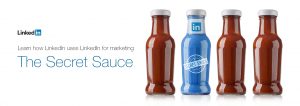The framework establishes a mechanism for data deletion requests that complies with privacy laws in the US, EU and Canada.

In a move that will simplify life for marketers, the IAB Tech Lab today released its Data Deletion Request Framework. The framework establishes a standardized mechanism for transmitting data deletion request signals in digital advertising.
“The industry has long struggled with the need for a standardized solution to manage data deletion requests,” Jared Moscow, director of product, privacy & addressability, IAB Tech Lab, said in a release. “The Data Deletion Request Framework addresses this challenge head-on, providing clear guidance and strategic insights into effectively handling these requests.”
It lays out how to validate request origins, ensure requester authenticity, confirm receipt and employ cryptographic signatures for authentication. Its holistic solution for handling data deletion requests means the framework aligns with the “Right to Delete,” a Data Subject Right (DSR) protected by the GDPR, 16 U.S. state privacy laws and additional privacy legislation, including Quebec Law 25.
Why we care. It’s good to see the private sector taking concrete steps on privacy issues, something Congress should be doing. The framework is just the latest of IAB Tech Lab’s portfolio of privacy compliance initiatives, including the Global Privacy Platform, the Accountability Platform and the Privacy Taxonomy project. Together they provide a solid foundation for streamlining privacy regulatory compliance and advancing responsible data-handling practices in digital advertising.
To encourage companies to use the framework, IAB Tech Lab is offering a 90-day implementation period with increased support for early adopters. During this period companies adopting new specifications will have access to extra assistance and guidance from IAB Tech Lab’s experts.
Anyone wanting more information and to access the final Data Deletion Request Framework can visit the website here.
The post IAB Tech Lab releases Data Deletion Request Framework appeared first on MarTech.
(18)


